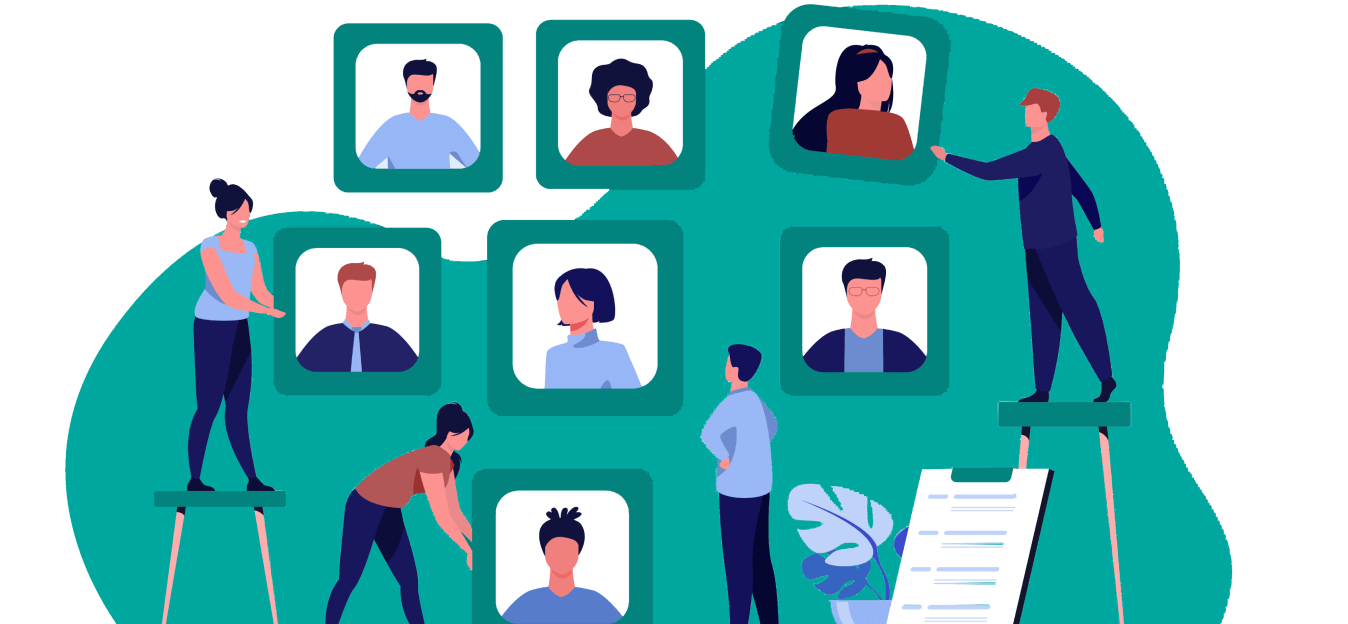As a recruiter or hiring manager, it is crucial to remain objective and impartial during the hiring process to build a diverse and inclusive workforce. Biases, whether conscious or not, can often result in qualified candidates being overlooked and missing out on equal opportunities.
Artificial Intelligence (AI) is already transforming the recruitment process, with AI-powered skill assessments and video interviewing tools making the process more efficient, automated, and cost-effective. One of the key benefits of AI hiring software is its ability to reduce bias and promote diversity, equity, and inclusion (DEI) as standard practice in the hiring process.
Let us dive into the role AI is playing in addressing this age-old problem and see how it is helping. But first, let us understand what recruitment bias is.
Understanding Recruitment Bias: A Persistent Problem
Recruitment bias has long been a significant issue affecting both candidates and organizations. Sometimes unintentional bias can manifest in various forms such as judging candidates based on their name, gender, ethnicity, age, or the university they attended. This can result in unfair hiring decisions, leading to qualified individuals being overlooked simply because they don’t fit a certain mold.
This not only disadvantages candidates but also limits companies’ access to a broader range of talent and ideas. Diversity is crucial for driving innovation, but humans naturally harbour biases, many of which are unconscious. This is where AI hiring software comes in, offering a potential solution.
How AI Tool is Reducing Recruitment Bias
AI in recruitment does not involve replacing human recruiters. Instead, it is about empowering them with tools that can help mitigate bias and improve decision-making. With the ability to process vast amounts of data and detect patterns, AI tools can objectively screen candidates based on their skills and experience rather than irrelevant factors like gender or age.
Here’s how AI tools for recruitment are changing the game:
Eliminate Bias in Job Postings
Bias can enter the recruitment process right from the start when creating the job description. The wording of a job description by an employer or recruiter can discourage some groups from applying and disadvantage others. AI tools for recruitment can help eliminate biased language from job advertisements, job descriptions, emails, and employer branding, effectively reducing the likelihood of bias entering your recruitment processes.
Resume Screening Without Prejudice
Traditional resume screening often involves skimming through resumes quickly, making it easy for unconscious biases to creep in. AI hiring software removes identifiers such as name, age, and gender, focusing purely on qualifications and experience. The algorithms rank candidates based on their fit for the role rather than any personal characteristics, giving everyone an equal opportunity to make it to the next stage.
Skills-Based Assessments
AI hiring software is being used more and more to evaluate candidates’ skills and potential. Instead of just looking at their job titles or degrees, these systems assess candidates’ actual abilities through tests and simulations. This shift in focus from background to real competencies levels the playing field for those who have taken non-traditional career paths.
Blind Hiring Platform
Blind hiring is a growing trend, and AI hiring software is powering this approach. By removing personal identifiers from resumes and applications, these tools ensure that hiring managers evaluate candidates based purely on their skills and experience. This can be a powerful way to tackle biases that come from factors such as names, ethnic backgrounds, or schools attended.
AI-Driven Interviews
Some AI tools for recruitment are now even being used to conduct interviews. These platforms can assess a candidate’s answers, tone of voice, and even body language, applying consistent criteria to all candidates. By removing subjective interpretation from the equation, AI can make the interview process more objective and fairer.
Data-Driven Decision Making
AI recruitment management software can track and analyze past hiring decisions to identify patterns that lead to successful hires. By analyzing this data, AI can detect biases that may have influenced previous decisions and help recruiters adjust their approach to future hiring. For example, if the AI identifies that candidates from certain demographics are consistently overlooked, it can recommend changes in recruitment practices to promote more diverse hiring.
The Benefits of Using AI to Tackle Recruitment Bias
By removing subjective influences from recruitment, AI has the potential to create a more equitable hiring process. Some key benefits include:
Consistency
One of AI’s greatest strengths is its consistency. The AI-best recruiting software applies the same criteria to every candidate, eliminating the chance of unconscious bias slipping in through human decision-making. Every candidate is evaluated against the same metrics, leading to a more fair and transparent process.
Efficiency
Sifting through resumes manually is time-consuming and prone to human error. AI tools can screen hundreds of resumes in a fraction of the time, quickly identifying top candidates without letting bias cloud the judgment. This allows recruiters to focus on higher-value tasks, such as engaging with the best candidates.
< strong>Diverse Talent Pools
AI-best recruiting software often uncovers candidates that might otherwise have been overlooked. For example, traditional recruitment processes may favour candidates with specific credentials or experience from top-tier companies. But by focusing on skills, AI helps bring more diverse candidates into consideration, which can lead to richer, more innovative teams.
Conclusion
AI recruitment management software offers the potential to address biases that have plagued traditional hiring processes for years, paving the way for a fairer and more inclusive recruitment landscape. By choosing AI-powered recruitment tools that prioritize fairness and accountability, organizations can build a more equitable hiring process and make better, unbiased hiring decisions.
However, it is important to note that AI-powered tools are not a standalone solution. They should complement, not replace, human involvement in the hiring process. Whilst AI can help reduce bias, it still requires human oversight and intervention to ensure that the technology used is aligned with your organization’s values and goals.













